Search results
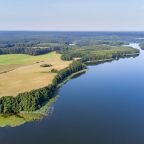
In Western Europe, heat and drought have had a firm grip on us for months now: we keep reading about forest fires, dried-up rivers and even problems with the supply of drinking water – phenomena that are likely to be exacerbated by climate change in the future and will not even stop at water-rich countries like Germany. Last week, for example, the Berlin Senate called on citizens to save water because of increasing drought. In the joint project go-CAM, a tool was developed with participation of a GRS research team that enables decision-makers in authorities and companies to define criteria for sustainable drinking water management.

Many countries expect Small Modular Reactors (SMRs) to play their part in helping them become less dependent on fossil fuels for electricity generation. However, most SMR concepts are still at different stages of development. While safety aspects already play a role from the first sketches of ideas, security measures (required protection against malicious acts) are often only given a secondary role. Therefore, in a research project that has just started, GRS is dealing with the characteristics of physical protection and computer security of different SMR concepts and to what extent security requirements and concepts of conventional nuclear facilities can be applied to SMRs. In this way, GRS wants to build up expertise and identify open questions in the application of existing rules and regulations.

Many countries expect Small Modular Reactors (SMRs) to play their part in helping them become less dependent on fossil fuels for electricity generation. However, most SMR concepts are still at different stages of development. While safety aspects already play a role from the first sketches of ideas, security measures (required protection against malicious acts) are often only given a secondary role. Therefore, in a research project that has just started, GRS is dealing with the characteristics of physical protection and computer security of different SMR concepts and to what extent security requirements and concepts of conventional nuclear facilities can be applied to SMRs. In this way, GRS wants to build up expertise and identify open questions in the application of existing rules and regulations.

On 2 November 2022, the operator EdF reported a leakage in the primary system during a so-called pressure test at the Civaux 1 nuclear power plant (NPP).
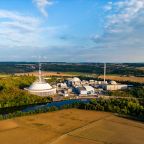
The remaining three operating nuclear power plants Emsland, Isar 2 and Neckarwestheim 2 were originally scheduled to be shut down on 31 December 2022 and subsequently dismantled. However, Russia's attack on Ukraine, which is in violation of international law, has led to significant price increases on the gas and electricity markets. The downtime of many French nuclear power plants and the insufficient expansion of the electricity grid to southern Germany have further aggravated the situation. Among other things, the overall situation has led to increased burdens on the electricity grids in Germany and Europe.
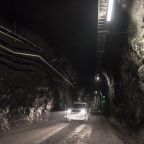
When evaluating repository systems in crystalline rock, the possible fracturing of the rock is a challenging variable. In the CHRISTA-II research project, GRS scientists have developed modelling for such a system and studied the influence that various parameters can have on the underground transport of contaminants over thousands of years.
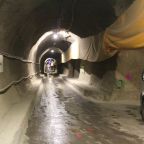
In the research project ANSICHT, the concept of a method for the safety case of a German repository for high-level radioactive waste in argillaceous (clay) rock was developed in 2014 with the help of generic geological site models and taking into account the legal requirements. However, this could not yet be fully tested at the time. Therefore, in the follow-up project ANSICHT-II, which has now been completed, calculations for long-term safety analyses were carried out to test the safe containment of radionuclides in the containment-providing rock zone (CRZ) in the clay rock for the two repository site models investigated in ANSICHT.
C.-L. Zhang (GRS), J. Wang (BRIUG), S. Kaufhold (BGR), Y. Liu (BRIUG), O. Czaikowski (GRS)
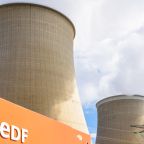
In the summer of 2022, more than half of the French nuclear power plants were temporarily off the grid. Electricity production in our neighbouring country collapsed, France had to buy considerable amounts of electricity from abroad - including from Germany, which in turn had an influence on the discussions about the temporary continued operation of the German nuclear power plants. But what about the French plants and their contribution to the electricity supply at the beginning of this year?